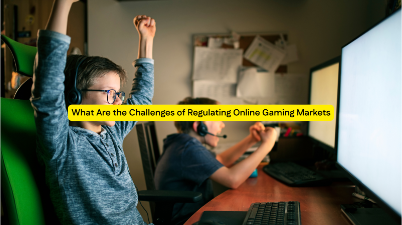Online gaming industry and millions of users across the globe playing different types of games from casual mobile games, competitive eSports to real money gaming platforms.
The global increase of the online gaming sector means that governments, and other regulators must introduce new regulations to make sure everybody plays fair.
Despite that, governing online gambling markets remains a complex proposition.
A Balancing Act This article makes an attempt to identify those challenges due to the incessant innovation that is driving the online gaming industry.

Global Nature of Online Gaming
These regulators also have a hard time enforcing their regulations in online gaming markets, which tend to cross country borders.
When hosted in a different country, on the other hand, players can access gaming platforms easily since there are no borders on the internet.
A big issue for national regulators as they can never control what is happening off the shore and many have no jurisdiction to intervene in the legal framework.
Defining the Scope of Regulation
Equally daunting is defining the object of regulation. It also includes casual gaming, esports, and other forms of online interactive media.
For example, mobile gaming sites that involve real money, like casino games or online poker rooms, can contribute to the increase in fraud, addiction, and financial manipulation.
In comparison, casual mobile games may simply have to comply with rules on user privacy and freemium acquisitions.
Consumer Protection
One big purpose of online gaming regulations is to shield users against corruption, fraud, and betting.
Simple, however, player protection is not always that simple to guarantee.
Players are often not aware of their options, or they may purposely use illegal or dangerous means to bet on sports.
That’s why it is very important to select a platform that protects their users’ data specially for money making games.
Platforms like Duiwin game offer advanced technology to protect the gamer’s data. This is a good site where you can start your journey without worrying about your privacy.
Monetization Models and Ethical Concerns
The monetization models of online gaming platforms pose additional issues.
A large number of games (especially free-to-play mobile games) use in-game purchases and microtransactions to make money.
They may backfire into problems like overspending, addiction, and unethical practices.
As we have discussed earlier, this is one of the most controversial monetization methods for games.
Detractors contend they are little more than a form of gambling because players pay money without any certainty about what kind of reward will actually be delivered.
Several countries — including Belgium and the Netherlands — have banned loot boxes entirely, while others are still mulling them.
Rapid Technological Advancements
New tech including VR, AR and AI increasingly blurs the lines, and in implementing new features its becoming harder to pin down for regulators what is being made.
Enforcement and Compliance
Enforcement, even when there are good regulations, is a big issue.
It is often difficult for national regulators to police such platforms as many are international.
Balancing Innovation and Regulation
Balancing innovation with regulation is one of the most difficult dilemmas for regulators.
One of the fastest growing sectors in the larger mass-market entertainment sector is innovation within an emerging technology space, the online gaming industry.
These heavy regulations might choke out innovation and hinder newer companies from entering the market.
So, that’s all we have for you about the Challenges of Regulating Online Gaming Markets. We hope that this guide has helped you. For more such guides, comment below.

